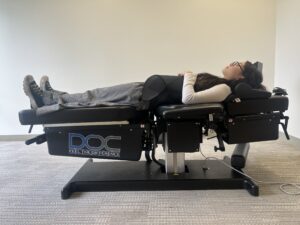The United States is the world leader of prescribing opioids, with a daily dose of 50,000 per million people. Prescription drugs are a vital part of your health coverage with Blue Cross Blue Shield.
Opioids are medicines prescribed as painkillers, often after car accidents, surgery, big injuries or to treat chronic pain. And because their prescription is legal many people are not aware of the addictive and dangerous effects.
As a Blue Cross Blue Shield provider, prescription opioids can be extremely effective in treating pain, they can also cause the user to experience a euphoric high, which makes them addictive. Nonmedical use of prescription pain pills is a key issue that may result in life-threatening consequences.
Prescription opioids include a wide variety of drugs such as Oxycontin, Percocet, Vicodin, Lortab, Ultram, Kadian, Avinza and more.
Aware of the addictive characteristics of Oxycontin, and that it has become a favorite drug to abuse on the streets, a major insurance company has removed Oxycontin from its list of drugs covered entirely, and put acupuncture as an alternative for treating chronic pain.
Americans and Drug Addiction
It is not a secret that Americans have a drug problem. The number of Americans who are using or abusing prescription medications is alarming. In 2015, there were more than 33,000 deaths caused by opioid overdoses. Roughly half of these cases, involved prescription opioid.
Opioids are given as pain medication for decades, but on the street, they are often mixed with other drugs. Because so many Americans have prescription medications stored in their medicine cabinets, it’s easy for teens to access them without a prescription and use them as a recreational drug, which is especially dangerous. This misusing brings up concerns for HIV, hepatitis and neonatal abstinence syndrome.
Neonatal abstinence syndrome is a condition in which an infant experiences withdrawal from opioid substances the mother took during pregnancy, and there have been more than 4,000 reported cases in the last few years.
The American Society of Addiction Medicine indicates that in 2015, 276,000 adolescents used painkillers for nonmedical purposes, and of those, 122,000 struggled addiction caused by prescription opioids.
Why Are These Drugs Addictive?
The causes of opioid addiction are complex and include a combination of genetic, environmental and lifestyle factors.
Prescription opioid addiction can affect people of any age, gender, income level or cultural background. And because these painkillers are often administered medically, it’s relatively easy to develop an addiction.
The opioids are highly addictive drugs, mostly because they activate powerful centers in the brain. They trigger the release of endorphins, which are brain’s “feel-good” neurotransmitters. Endorphins shut down the perception of pain and boost feelings of pleasure and euphoria, in that way creating a powerful temporary sense of well-being. When the opioid dose wears off, patients find themselves wanting those feelings back as soon as possible. And this is how addiction starts.
Repeated use of opiates can inhibit the production of the body’s natural endorphins. And over time, opiates will desensitize the brain’s natural opioid system, making it less responsive. This is called tolerance. When tolerance appears, the person will no longer respond to the drug as strongly and will need a higher dose to achieve the desired effect. Tolerance fuels addiction because the addict will need to continue to increase his dosage in order to experience the desired high, eventually leading to overdose, which often ends fatal.
Blue Cross Blue Shield Takes A Stance Against Oxytocin

Amid the opioid epidemic, Blue Cross Blue Shield has removed Oxycontin from its list of drugs covered entirely.
This decision came after the insurance company acknowledged that Oxycontin is a favorite drug to abuse on the streets, and as an alternative to opioids, is now covering more tamper-resistant drugs and acupuncture, a traditional Chinese medicine practice used to relieve pain and treat other conditions.
According to research, acupuncture has a relevant effect on chronic pain that persist over time and has been shown that triggers the same pain fighting responses in the body as opioids.
In order to identify members who could be at risk of opioid addiction, Blue Cross Blue Shield is encouraging providers to ask questions such as: have you ever been diagnosed with addiction; does addiction run in your family; have you ever had a problem getting off of a substance; etc.
To experience the benefits of acupuncture, schedule an initial consultation for evaluation and first treatment.
More helpful resources:
How Can Acupuncture Help With Pain Relief.
Acupuncture is an ancient Chinese form of alternative medicine, primarily used for pain management. It involves inserting thin needles into the skin at specific “acupoints.” This may relieve pain by releasing endorphins, and by affecting the part of the brain that governs serotonin, a brain chemical involved with mood.
It has been used in Asia for centuries to treat many conditions and relieve pain. It’s now being used all over the world, to ease everything from back and neck pain, osteoarthritis pain, to nerve pain, and headaches, to fibromyalgia, and menstrual cramps.
The acupuncturist typically inserts four to ten needles and leaves them in place up to half an hour. A usual course of treatment includes six to twelve sessions over a three-months period.
Acupuncture is a quite safe procedure with a very low complication rate. The evidence behind acupuncture is increasing rapidly and most people stand to benefit from it.
If you have Blue Cross Blue Shield insurance and would like to find out if you are a candidate for our treatment we would like to meet you. To experience the benefits of acupuncture, schedule an initial consultation for evaluation and first treatment.



